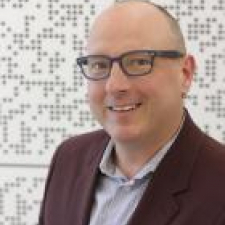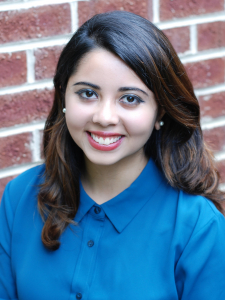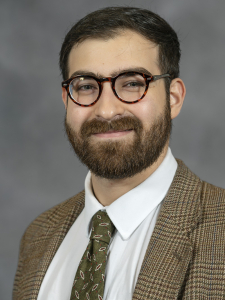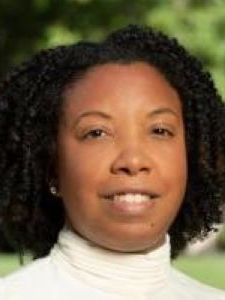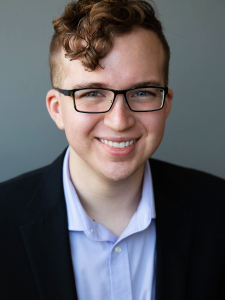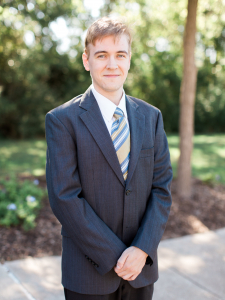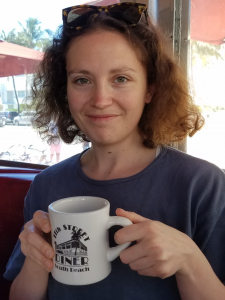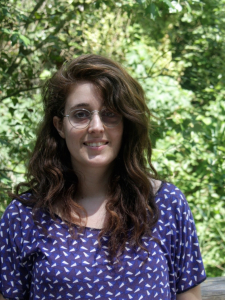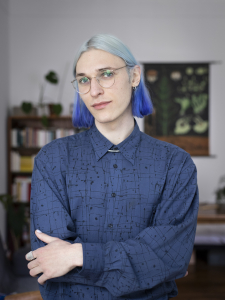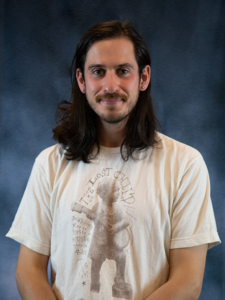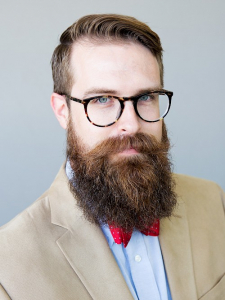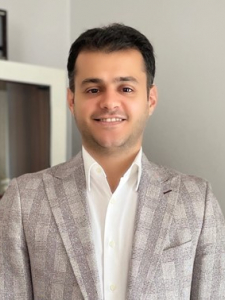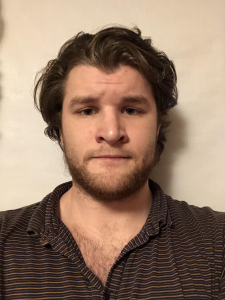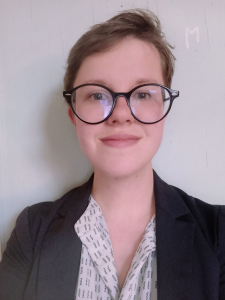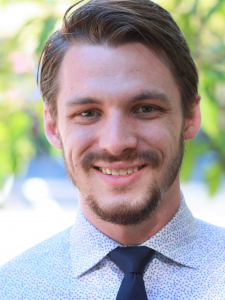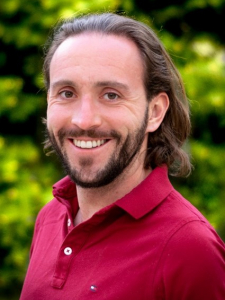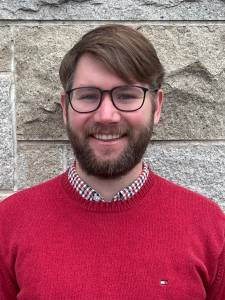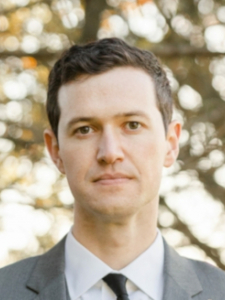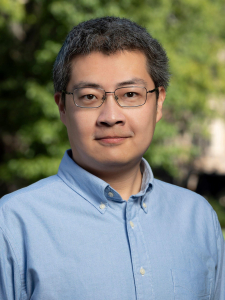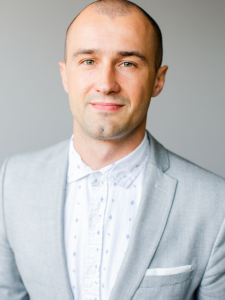The 2022 Summer Institute on the History of Economics will take place at Duke University from June 20 through June 29, 2022. The Institute will focus on giving participants the tools to set up and teach their own undergraduate course in the history of economic thought. There will also be sessions devoted to showing how concepts and ideas from the history of economics might be introduced into other classes. The sessions will be run by Duke faculty members Bruce Caldwell, Steve Medema, and Jason Brent.
Sessions will be held in the Fuqua School of Business. There is no charge for coming to the Institute, and successful applicants who are not locally based will be provided with complimentary housing (double occupancy) at the Washington Duke Hotel. Participants will also receive a booklet of readings, a reimbursement for travel expenses (up to $750), and a $250 meal card for use at various Duke University dining venues.
Duke, which boasts five specialists in the field on its faculty, is home to the Center for History of Political Economy, a center whose mission is to promote and support research in, and the teaching of, the history of political economy. The premier journal in the field, History of Political Economy, is published here.
Duke requires all visitors to have received COVID vaccination and booster shots.
Eligibility
The Summer Institute programs are designed primarily for PhD graduate students in economics programs in North America. However, applications from students and scholars from other fields and from overseas will be welcomed.
The Institute's faculty will assess applications with regard to:
- Academic and professional accomplishments of the candidate.
- Relevance of the Summer Institute to the candidate's graduate studies and prospective teaching.
- Expression of interest shown by the candidate for historically informed research in economics.
Award, tenure, and conditions of award
Successful candidates who are not locally based will be provided with free double-occupancy housing in the Washington Duke Inn. If there is someone who has been accepted with whom you would like to share a room, let us know. We will in general try to place people of the same gender together. Let us know the gender with which you identify. If you are indifferent as to the gender of your roommate, let us know – it will make it easier to assign rooms in the event that we have an odd number of accepted applicants with respect to gender.
A booklet of readings for the Summer Institute will be mailed in advance to those who are attending. Institute participants are required to attend all meetings and to engage fully in its assigned work.
Application materials and deadlines
Applicants should apply with a cover letter and a CV.
The cover letter should address your reasons for applying as well as your interest (academic and/or personal) in the history of economics. The letter should also include a statement of what you want to accomplish by participating in the Institute. Participants who want to apply for a travel subsidy should indicate that in their cover letter, and provide an estimate of the cost. Your curriculum vitae or brief biography should not exceed four pages.
Applications should be submitted electronically to chope@econ.duke.edu with the subject line “SI Application.” If your application is not acknowledged within two business days, please email us again.
Applications should be received electronically no later than March 1, 2022. If your application is not acknowledged within two business days, please email us. Successful applicants will be notified of their selection by late March and should respond within a week by accepting or declining the offer.
Duke requires all visitors to have received COVID vaccine and booster shots.
Monday June 20, 2022:
3 pm-6 pm Participants check in to the Washington Duke Hotel
6 pm Meet in lobby of the Washington Duke Hotel
6:30 pm, Welcome Dinner at the campus pub, the Devil’s Krafthouse
All sessions will be held in the 2008 MBA Classroom on the 1st level of the Fuqua School of Business.
Tuesday June 21, 2022:
9:30 am, Session 1 – Introductions of Program and Participants; Tips on Setting Up a History of Economic Thought Course – Caldwell, Medema
The Greeks – Medema
- Aristotle, Politics and Nichomachean Ethics, excerpts. In Steven Medema and Warren Samuels, eds. The History of Economic Thought: A Reader (2nd ed., New York: Routledge, 2013), pp. 4-17. (Henceforth readings found in this book will be noted by M&S.)
2:30 pm, Session 2 – Scholasticism and Mercantilism (begin) – Caldwell
- Thomas Aquinas, Summa Theologica, excerpts, in M&S, pp. 18-34.
- Michael Munger, “They Clapped: Can Price-Gouging Laws Prohibit Scarcity?” Econlib: https://www.econlib.org/library/Columns/y2007/Mungergouging.html
- Jacob Viner, “Mercantilist Thought” (1968), in Jacob Viner, Essays on the Intellectual History of Economics, Douglas Irwin, ed. (Princeton: Princeton University Press, 1991), pp. 262-76.
- Thomas Mun, England’s Treasure by Forraign Trade (1664), chapters 2-4, in M&S, pp. 35-44.
Supplementary Reading: Robert Heilbroner, The Worldly Philosophers (6th ed., New York: Simon and Schuster, 1986), chapters 1 & 2. A nice intro to the Economic Revolution that spawned more systematic thinking about economics.
Lars Magnusson, Mercantilism: The Shaping of Economic Language. London: Routledge, 1994, especially chapters 1 & 2. The historiography of mercantilism.
Wednesday June 22, 2022:
9:30 am, Session 3 – Mercantilism (end) – Caldwell, and Physiocracy – Medema
- François Quesnay, Tableau Economique, in M&S, pp. 106-113.
- G. Vaggi, “Physiocracy,” The New Palgrave.
- Loïc Charles and Christine Théré, “From Versailles to Paris: The Creative Communities of the Physiocratic Movement,” History of Political Economy, vol. 43, 2011, pp. 25-58.
Supplementary Reading: Loïc Charles, “The Visual History of the Tableau Économique,” European Journal of the History of Economic Thought, vol. 10, 2003, pp. 527-550.
2:30 pm, Session 4 – The Scottish Enlightenment and Adam Smith – Caldwell
- Adam Smith, The Theory of Moral Sentiments (1766), excerpts.
- Jacob Viner, “Adam Smith and Laissez-Faire” (1927), in Jacob Viner, Essays, op. cit., pp. 85-113.
- Smith, An Inquiry into the Nature and Causes of the Wealth of Nations [1776] R. H. Campbell, A. S. Skinner, and W. B. Todd, eds. (Indianapolis: Liberty Press, 1981), Smith’s Introduction and Plan of the Work; Book I, chapters 1, 2, 3, 4 (sections 1-4, 11-18).
Thursday June 23, 2022:
9:30 am, Session 5 – Smith and The Wealth of Nations - Medema
- The Wealth of Nations, Book I, chapters 5 (sections 1-17), 6 (sections 1-10), 7, 10c (section 27 – p. 145), 11p (sections 7-10, pp. 265-67). Book II, chapter 3 (sections 1 -3, 12 -18, 30-32); Book IV, chapter 1 (sections 1 – 10), 2 (sections 1-15, 23-24, 31, 37-38, 40, 43), 9 (sections 50-52); Book V, chapter 1.
2:30 pm, Session 6 – Malthus and Ricardo – Brent
- Thomas Robert Malthus, An Essay on the Principle of Population (1798), excerpts, in M&S, pp. 210-225.
- David Ricardo, On the Principles of Political Economy and Taxation (1817), excerpts, in M&S, pp. 265-301.
Supplementary Reading: George Stigler, “Ricardo and the 93 Per Cent Labor Theory of Value,” in Essays in the History of Economics (Chicago: University of Chicago Press, 1965), pp. 326-42.
Friday June 24, 2022:
9:30 am, Session 7 – Marx – Caldwell and Medema
2:30 pm, Session 8 – Marx – Caldwell and Medema
From Robert Tucker, The Marx-Engels Reader. NY: Norton, 1978.
- Engels, “Socialism: Utopian and Scientific” (pp. 681-717)
- Marx, Preface to A Contribution to the Critique of Political Economy [1859] (pp. 3-6)
- Marx and Engels, “The Communist Manifesto” (pp. 473-91; 499-500. Omit section III.)
- Marx, A taste of Das Kapital: I, chapter 7, sec. 2 (pp. 351-61); I, chapter 25 (pp. 419-35)
Saturday June 25, 2022:
9:30 am, Session 9 – Marginalism, and the Methodenstreit – Caldwell
- Mark Blaug “Was There a ‘Marginal Revolution’?” History of Political Economy, vol. 4, Fall 1972, pp. 269-80.
- Bruce Caldwell, Hayek’s Challenge: An Intellectual Biography of F. A. Hayek (Chicago: University of Chicago Press, 2004), pp. 17-35.
- Philip Mirowski, “Physics and the ‘Marginalist Revolution’,” Cambridge Journal of Economics, vol. 8, 1984, pp. 361-79.
Supplementary Reading: E. Roy Weintraub, “Burn the Mathematics (Tripos),” How Economics Became a Mathematical Science (Durham: Duke University Press, 2002), chapter 1.
Caldwell, Hayek’s Challenge, chapters 2-5.
2:30 pm, Session 10 – Marginalism, Marshall and Cambridge – Medema
- Alfred Marshall, The Principles of Economics, 8th ed. (1920): Book I, chapters 1, 4; Book V, chapters 1-3.
- John Whitaker, “Alfred Marshall,” The New Palgrave
Sunday June 26, 2022 – Free Day
Monday June 27, 2022:
9:30 am, Session 11 – American Institutionalism – Brent
- Thorstein Veblen, Theory of the Leisure Class [1899], chapters 3 and 4, in M&S, pp. 643-44, 650-75.
- Malcolm Rutherford, The Institutionalist Movement in American Economics, 1918-1947: Science and Social Control (Cambridge: Cambridge University Press, 2011), chapter 1.
Supplementary Reading, Veblen, Theory of the Leisure Class, chapter 2, in M&S, pp. 645-50.
2:30 pm, Session 12 – Keynes – Caldwell
- John Maynard Keynes, “The End of Laissez-Faire” [1926], in M&S, pp. 622-25.
- Keynes, J. M. The General Theory of Employment, Interest and Money (New York: Harcourt Brace, 1936), Chapter 1, p. 3; Chapter 2, pp. 18-22; Chapter 3, pp. 32-34; Chapter 12; Chapter 22, pp. 313-320, Chapter 24.
- Bradley Bateman, “Keynes and Keynesianism,” in The Cambridge Companion to Keynes, edited by Roger E. Backhouse and Bradley W. Bateman (Cambridge: Cambridge University Press), 2006, pp. 271-90.
Tuesday June 28, 2022:
9:30 am, Session 13 – Welfare Economics and its Critics – Medema
- A. C. Pigou, State Action and Laisser-Faire,” in Economics in Practice (London: Macmillan), pp. 107-28.
- James M. Buchanan, “Positive Economics, Welfare Economics, and Political Economy,” Journal of Law and economics, vol. 2, 1959, pp. 124-38.
- Herrade Igersheim, “The Death of Welfare Economics: History of a Controversy,” History of Political Economy, vol. 51, 2019, pp. 827-65.
Lunchtime Breakout Session: Teaching MBA/Business School Students – Brent
- Lepak, David P., Ken G. Smith, and M. Susan Taylor. "Introduction to Special Topic Forum: Value Creation and Value Capture: A Multilevel Perspective," The Academy of Management Review, vol. 32, 2007, pp. 180-94.
2:30 pm, Session 14 – Behavioral Economics – Brent
- Thaler, R. H. “From Homo Economicus to Homo Sapiens,” Journal of Economic Perspectives, vol. 14, 2000, pp. 133-141.
- Kahneman, D., & Tversky, A. “Prospect Theory: An analysis of Decision under Risk,” Econometrica (Pre-1986), vol. 47, 1979, pp. 263-92.
Wednesday June 29, 2022:
9:30 am, Session 15 – F. A. Hayek, His Life and Ideas – Caldwell (watch video before class with Handout)
- Handout on Hayek
- Video on Hayek: https://hope.econ.duke.edu/media/chope-faculty-talks
- F. A. Hayek, “The Use of Knowledge in Society” [1945], reprinted in The Market and Other Orders, edited by Bruce Caldwell, volume 15 (2014) of The Collected Works of F. A. Hayek. Chicago: University of Chicago Press, chapter 3 (pp. 93-104).
- F. A. Hayek, “Postscript: Why I Am Not a Conservative,” The Constitution of Liberty [1960], edited by Ronald Hamowy, volume 17 (2011) of The Collected Works of F. A. Hayek, pp. 519-33.
The final half hour of Session 15 will be a Summer Institute Wrap-Up – no readings.
Participants depart Washington Duke Hotel by 12 noon
|
Bruce Caldwell is a Research Professor of Economics and the Director of the Center for the History of Political Economy at Duke University. He is the author of Beyond Positivism: Economic Methodology in the 20th Century (1982), of Hayek's Challenge: An Intellectual Biography of F. A. Hayek (2004), and since 2002 has served as the General Editor of The Collected Works of F. A. Hayek, a multi-volume collection of Hayek’s writings. A past president of the History of Economics Society and of the Southern Economic Association, he is currently working on a family-authorized biography of Hayek. When he's not working on Hayek, he doesn't know what to do, but sometimes he fills his time with tennis and golf. |
|
Steve G. Medema the George Family Research Professor in the Department of Economics at Duke University and the Associate Director of the Center for the History of Political Economy. He is the author of The Hesitant Hand: Taming Self-Interest in the History of Economic Ideas (Princeton, 2009), Economics and the Law: From Posner to Post Modernism and Beyond (Princeton, 2006), and The Economics Book: From Xenophon to Cryptocurrency, 250 Milestones in the History of Economics (Sterling, 2019). He currently serves as the general editor of the Oxford Studies in the History of Economics book series, published by Oxford University Press, and was editor of the Journal of the History of Economic Thought from 1999 to 2008. Dr. Medema's current research project explores the history of the use of the Coase theorem in economics, law, and beyond. |
|
Jason Brent attended the very first HOPE Summer Institute in Denver, CO, during the summer of 2011. He is currently a fellow at the HOPE Center and an Adjunct Assistant Professor at Duke University, teaching in the economics department, the Fuqua School of Business, and the Sanford School of Public Policy. In addition to teaching the survey course in the history of economics at Duke for the past four years, Jason has taught courses across the university on economic reasoning that integrate models from the history of economics with contemporary analysis and issues. These courses have been designed to bridge the gap between modern technical economics and the historic models and ideas that still often dominate discussions in the worlds of policy and business. As part of an ongoing project, in the spring of 2019 he introduced a new course for Duke undergraduates on economic analyses of the wealthy, again combining writings by Aquinas, Smith, Malthus, Marx, Veblen, and others with contemporary thinkers to look at how economists think – and have thought – about determinants of income and wealth, inequality, investment, and consumption among the very rich. |
Ibanca Anand is a second-year PhD student in History at Johns Hopkins University, where she researches the history of the social sciences in the twentieth century. She is currently working on a project that explores how economists thought about power in midcentury America. Prior to the PhD, she studied economic history at the LSE and worked at as a program manager for the Cleveland region's chamber of commerce. Her interest in the history of economics was sparked as an undergraduate at Duke many years ago, and she is looking forward to returning to the HOPE Center this summer!
Gabriel Benzecry - a second-year Ph.D. student and research fellow at the Political Economy Research Institute at Middle Tennessee State University (MTSU). I am originally from Manaus - a gorgeous city in the heart of the Brazilian Amazon. I moved to the U.S. in 2016 to pursue my undergraduate education. In 2020, I earned my B.A. in Economics at Wake Forest University, and in 2021 I earned my M.A. in Economics at MTSU. I previously worked as a Research Assistant at the Wake Forest University School of Law. Currently, I work as a Graduate Teaching Assistant for the Jennings A. Jones College of Business, tutoring Principles of Microeconomics and Macroeconomics. My research interest lies at the intersection of historical political economy and intellectual history.
Michelle Blair - a doctoral student of economics at Duke University. Up until 2021, she was a lead researcher in the U.S. federal government, serving as Assistant Director of Assessment Development for one of the world's most respected educational testing programs. Her current research interests include: using U.S. datasets and datasets in other countries to explore how status markers, such as race/ethnicity and gender, influence markets, human capital, economic growth, and innovation. These interests overlap with Development Economics, Public Economics, Labor Economics, Political Economy, Economic History, and Applied Microeconomic Theory.
Vincent Carret - is a visiting researcher at Duke University, and a graduate of the Institut d'études politiques of Lyon, who recently obtained his PhD in economics from Université Lumière Lyon 2. His interests include macroeconomic dynamics, modeling practices of economists and the history of economic liberalism. He published articles in the Journal of the History of Economic Thought, the European Journal of the History of Economic Thought, the Revue d'Economie Politique and History of Economic Ideas, in addition to a book co-authored with Michaël Assous and published by Springer. During the Summer of 2022, he is working part-time at the Duke University Archives, where he is processing the papers of Leonid Hurwicz.
Alexander Craig - is a Visiting Assistant Professor of Economics and Business at Beloit College. Before coming to Beloit, he earned his Bachelor of Science from the University of Oklahoma, where he studied chemical biosciences and economics, and his PhD in economics from George Mason University. He works to bridge the gap between sociologists and economists by emphasizing how social structure and cultural frames influence rational human action. Often, he uses the context of communities’ experience with natural disasters to reveal how social life and economic life shape one another, demonstrating the relevance of studying social life when studying economic (re-)development. Beginning in the fall of 2022, he will be a Postdoctoral Fellow in the Department of Economics at New York University.
Brandon Campbell is a Professor at Tyler Junior College in the Government and Economic Department. Brandon Campbell defended his dissertation on Two-Juror problem with partial-impartiality, Nomination Rules, and Partially informed donors in a public goods game at Texas A&M in Summer of 2018. He earned his PhD from Texas A&M in 2018, and his BS in Economics from Texas A&M in 2009. In addition to his education in Mechanism Design, he has been studying Catholic Usury Theory and its contribution to developing modern financial contracts and entrepreneurship, and the culture and economics of civilizational collapse such as the Henri Pirenne Hypothesis.
Lindsay Marie Ceballos - is an assistant professor of Russian and East European Studies at Lafayette College in Easton, PA and lives in Philadelphia. She has published a range of articles on Russian culture and literature and her first book manuscript is entitled "Reading Faithfully: Russian Modernist Criticism and the Making of Dostoevsky, 1881-1917." At the moment, she is beginning a second book project on race, national identity, and socio-economic relations in 19th-century Russian literature bearing the tentative title, "Children of Gannibal: The Multiethnic Past and Future of Russian Literary Heritage."
Shani Cohen-Shani is a third year PhD candidate at Harvard, studying economics. Previously, she did a master's degree in mathematics, and worked as an algorithm developer. She is interested in economic theory (both micro and macro) with a strong interest in economic thought and economic philosophy. Shani is interested in violations of rational expectation, in the theory of expectation formation and the macroeconomic implications of these.
Sasha Dorofeev (he/him | she/her) is a PhD candidate at the Economics Department of New York University (NYU) and a guest researcher at the Wissenschaftszentrum Berlin für Sozialforschung (WZB). His research interests lie in the areas of gender, power, and the foundations of civil society. In her work on HET, Sasha specializes on the XIX century and explores the connections between economic thought and British imperialism. Website: https://sashadorofeev.net/
Mike Finnegan - a Ph.D. student in Economics at the University of Michigan. Their fields of interests are economic geography, trade, and development. One current research interest they are pursuing is persistence and path dependence in developmental outcomes arising through trade. Before coming to the University of Michigan they were a Research Assistant at The Federal Reserve Bank of Richmond. They obtained a B.S. in Economics and Mathematics and a M.A. in Economics from the University of Alabama. They strive to connect their academic interests to their politics by being active in local tenant and labor organizing groups.
Filis Maria Goungor - a PhD candidate at the Department of History and Philosophy of Science of National and Kapodistrian University of Athens. Her research concerns the history of early 20th century Japanese economic thought. She was born in Greece, in 1990. She studied Economics at National and Kapodistrian University of Athens, Greece and obtained her Master degree on the History of Economic Thought from Université Paris I Panthéon – Sorbonne, France. Her previous research concerned the history of Polish economic thought.
Sarah Hamerling -Sarah Ngo Hamerling is a second-year PhD student in economics at MIT. Previously, she obtained a B.S. in Economics and Mathematics at Yale, and worked as a Research Analyst in Financial Intermediation at the Federal Reserve Bank of New York. In addition to the history of economic thought, Sarah is interested in contract theory and macroeconomic theory, especially wage determination, implicit credit relations, and alternative work arrangements.
Senan Hogan-Hennessy - a 2nd year PhD student in economics at Cornell University, where he focuses on topics in labour economics using tools from econometrics and data science. His most recent work examines the relationship between universities' finances and the salaries for the professors they employ, as well as the empirical distribution of rideshare drivers' earnings. He holds a BA in economics from Pomona College, and if he's not working on his research then he is usually riding his bike.
Andrew Humphries -a Postdoctoral Fellow at Arizona State University in the School of Civic and Economic Thought and Leadership. Andrew defended his dissertation on Smith and Tocqueville at GMU in the spring of 2021. He earned his MA in Economics from George Mason, his M.Ed. from Endicott College, and his BA in Liberal Arts from St. John’s College. He previously worked as an educator in the United States, India, and Guatemala. In addition to his interests in Smithian Political Economy and Austrian economics he is passionate about liberal education and Socratic pedagogy.
Fatih Kirsanli - a PhD candidate in economics at Colorado State University and a researcher at Ayaan Institute. His research concentrations are macroeconomics, political economy, and institutional economics. More particularly, Fatih focuses on corruption and its impacts on macroeconomic variables in the Middle East and North Africa (MENA). He has been an instructor since summer 2020 and has taught principles and intermediate level courses. He is expected to graduate in Summer 2022.
Rafael Lazega - After a bachelor’s in political science at the University of Lausanne and a master’s in economics at the University of Neuchâtel, I am now a Phd candidate in « Philosophy and History of Economics » at the Walras Pareto Centre of the University of Lausanne. My research focuses on the articulation of the positive and the normative in the works of Frank Knight and Ronald Coase.
Evan Majic - a Ph.D. student in Economics at Northwestern University. He received his A.B. in Economics at Princeton University and worked in the financial sector before pursuing graduate study at Northwestern. His interests include household finance, computational macro, and time series econometrics.
Isobel Plowright - a fifth year PhD candidate at Columbia University in History. They completed a BFA with a Minor in Irish Studies and a Master's in Interdisciplinary Studies (History, Design, and Performance Studies) at Concordia University in Montréal. Their current dissertation research focuses on the American branch of the International Workingman's Association, with a particular emphasis on the history of labor internationalism during Reconstruction. They are passionate about introducing historical research to a broader public and have worked as a Public History coordinator at the Lehman Center for American History since last year.
Blaz Remic - recently defended his PhD dissertation on the topic of intrinsic motivation and value learning in contemporary behavioral economics at Erasmus University Rotterdam. His research interests lie at the intersection of economics, psychology, and philosophy. His work has been published in Journal of Economic Methodology, Review of Political Economy, and Journal of Contextual Economics. He holds a degree in jazz piano and prior to entering the academia he worked for several years as a professional musician.
Tim Seida - a Ph.D. student in Northwestern University’s financial economics program, a joint degree offered through the Finance Department at the Kellogg School of Management and the Economics Department at the Weinberg College of Arts and Sciences. His research interests include macro-finance, household finance, unconventional monetary policy, and mortgage markets. He received a B.A. in financial economics from the University of Notre Dame, and before beginning the Northwestern Ph.D. program worked as a Research Assistant in the Finance group at the Federal Reserve Bank of Chicago. Tim has a long-standing interest in the history of economic thought and looks forward to learning from instructors and colleagues at this year’s Summer Institute.
Dillon Tauzin -is beginning as a Clinical Professor at Chapman University in Fall 2022. He earned his PhD from George Mason University. His primary research project is on the social and economic thought of Frank Knight. He examines and explains Knight's peculiar views on the economics of socialism and on the limitations of economics as a science. He also has research interests in the economics of education and constitutional political economy.
Jan Weber - is originally from Germany where he completed his undergrad and master degree. He also studied in Sweden and the Us to obtain his degrees. Currently enrolled as a PhD student at the University of Utah, he studies market power of firms. His methodological approach relies on network analysis and econophysics. Both of those approaches are deeply rooted in the classic work of Adam Smith and Karl Marx.
Ryan Westphal-A PhD student in Economics at Boston College. His fields of interest are Industrial Organization and Behavioral Economics. He is interested in studying how individual decision making affects market outcomes, particularly in high stakes settings such as the market for mortgages. Ryan received a B.S. in Economics and Computer Science from Duke University. In his free time, Ryan loves to travel, cook, do anything outdoors, and cheer on the Blue Devils.
Colin Williams - a PhD student in economics at the University of Virginia. His research interests are in industrial organization and urban economics, and he is particularly curious about how policy, markets, and technology determine urban structure. Prior to his PhD, Colin worked in antitrust consulting and studied mathematics at Williams College. He enjoys biking and watching e-sports.
Luke Zhao - is a PhD student at Duke University.
Konstantin Zhukov - a third year PhD student in the Department of Economics at George Mason University. He earned his MA in Economics at Troy University, and his BBA Business and Accounting at Northwood University. His research interests include Austrian economics and economic sociology.
Kulyash Zhumadilova - a doctoral candidate in Science, Technology and Society (STS) at Virginia Tech. She received her MSc from Skoltech and BSc from Nazarbayev University. Kulyash has many interests ranging from history and philosophy of science to contemporary critical issues, like rising inequality. She was born and raised in Shymkent, Kazakhstan.
Venue
- Classes will be held in the Fuqua School of Business, which is a 10-minute walk from the Washington Duke Inn, where out-of-town participants will be staying.
Travel
- Duke University is located near downtown Durham. View Larger Map
- RDU International Airport is located about 20 miles from campus. Taxi and Uber services are recommended for travel to and from the airport. A taxi from the airport to campus will cost around $45.
- The campus buses operate on a limited schedule during the summer. More information on transportation can be found at Duke University Transportation Services.
- Participants will be staying at the Washington Duke Inn located ten minutes from the Fuqua School of Business. The sessions will be held in the Fuqua School of Business. Duke Interactive Map
Weather
- June in North Carolina can range from 60 degrees in the evenings to 90 during the day.
Dining
- Participants will received a Duke dining card worth $250. The card is good at restaurants in the Brodhead Center and the Bryan Center. There are also good cafeterias in the Fuqua School of Business and in the nearby Law School (the dining card is not accepeted at those places).
- The Brodhead Center in the West Union Building contains several restaurants, but they may have limited hours during the summer.
- For complete details of dining on campus, visit Duke Dining.
- A wide variety of cuisines are available in Durham. There are some great restaurants and bars on Ninth Street and along Main Street downtown. These two streets are easily accessible from East Campus, which is accessible by campus bus from West Campus.
Library Hours
- See here.
Health
- In the event of a life-threatening emergency, participants should go directly to the Emergency Department (684-2413). If necessary, Duke Police (911 or 684-2444) will provide on-campus transportation to the Emergency Department.
Banking
- There are ATMs on the bottom floor of the Bryan Center.
Durham Events/Info
- For a calendar of events and information on things to do in the area, go here.
For questions about the Summer Institute, please email chope@econ.duke.edu.
Applications should be submitted electronically to chope@econ.duke.edu with the subject line “SI Application.” If your application is not acknowledged within two business days, please email us again.
Applications should be received electronically no later than March 1, 2022. Successful applicants will be notified of their selection by late March and should respond within a week by accepting or declining the offer.


